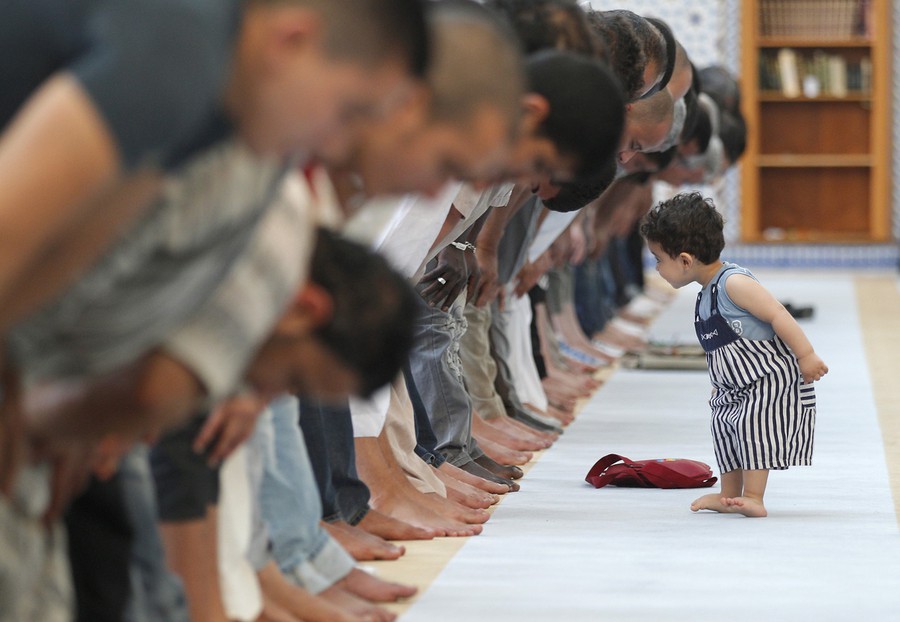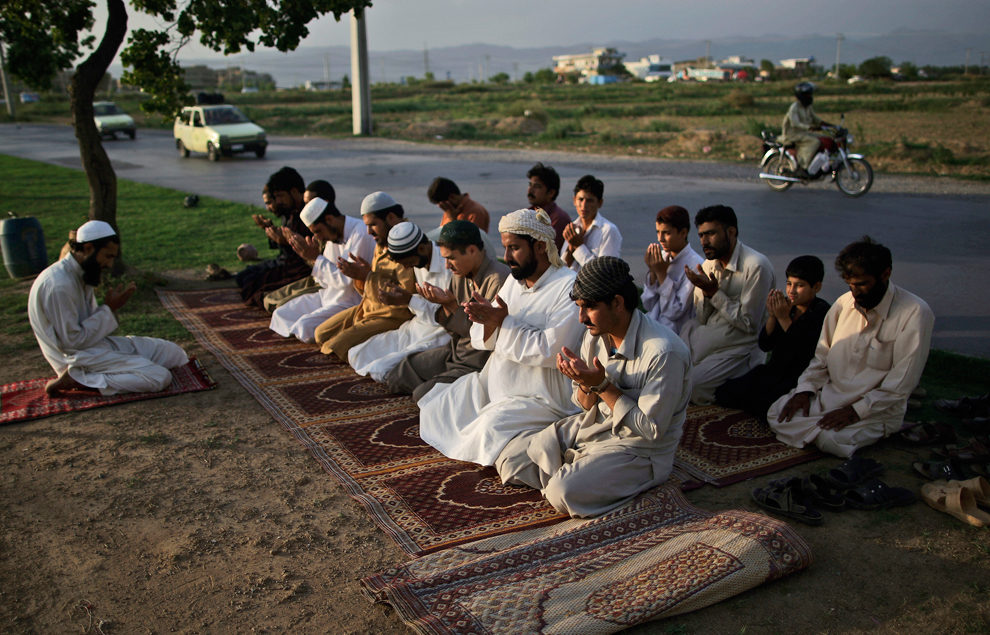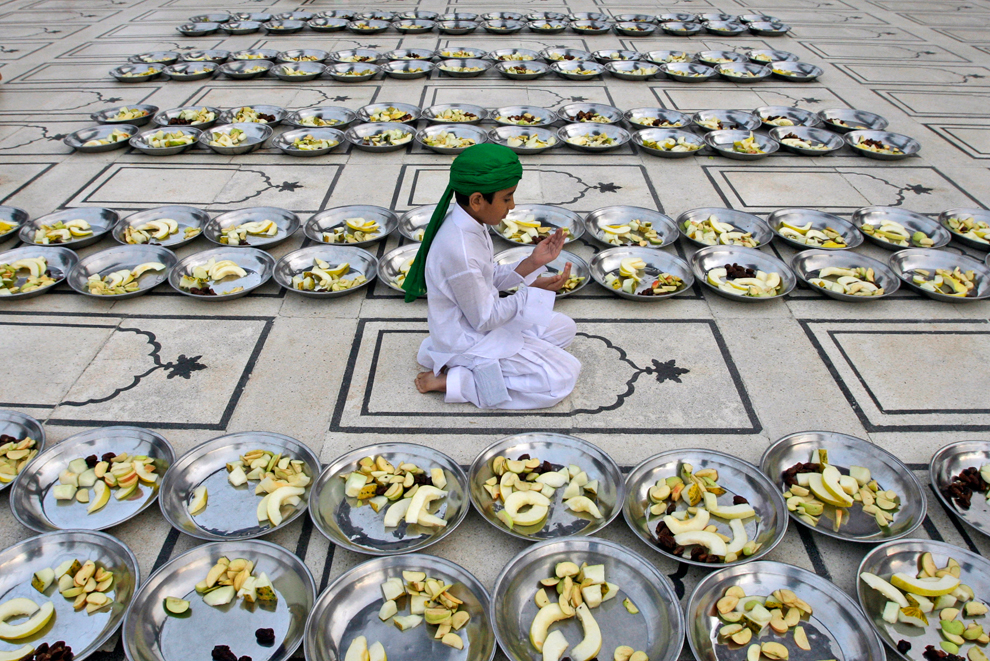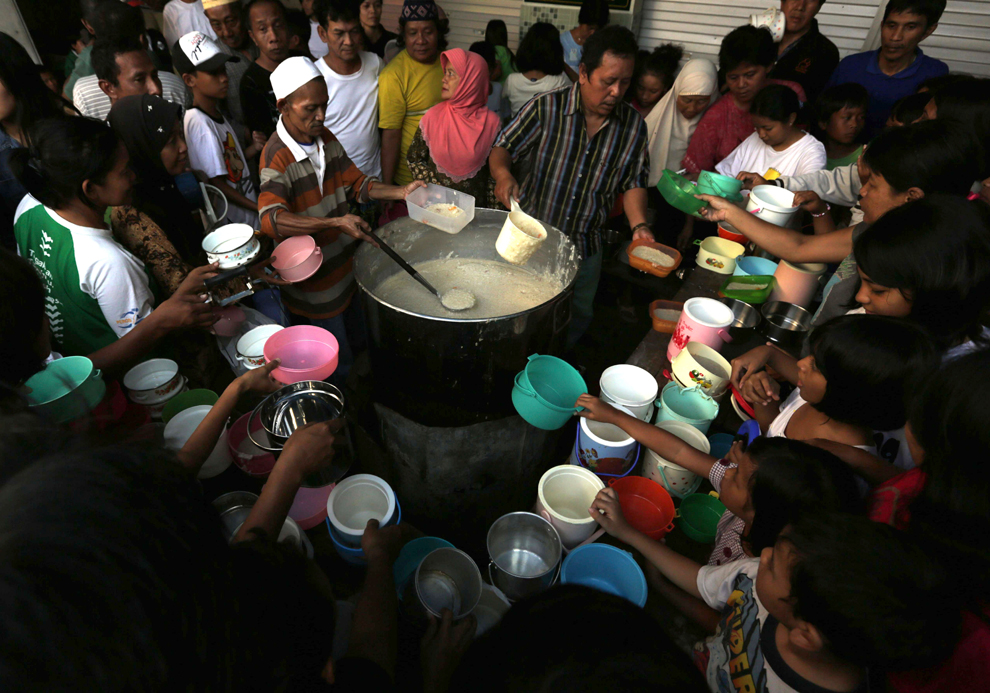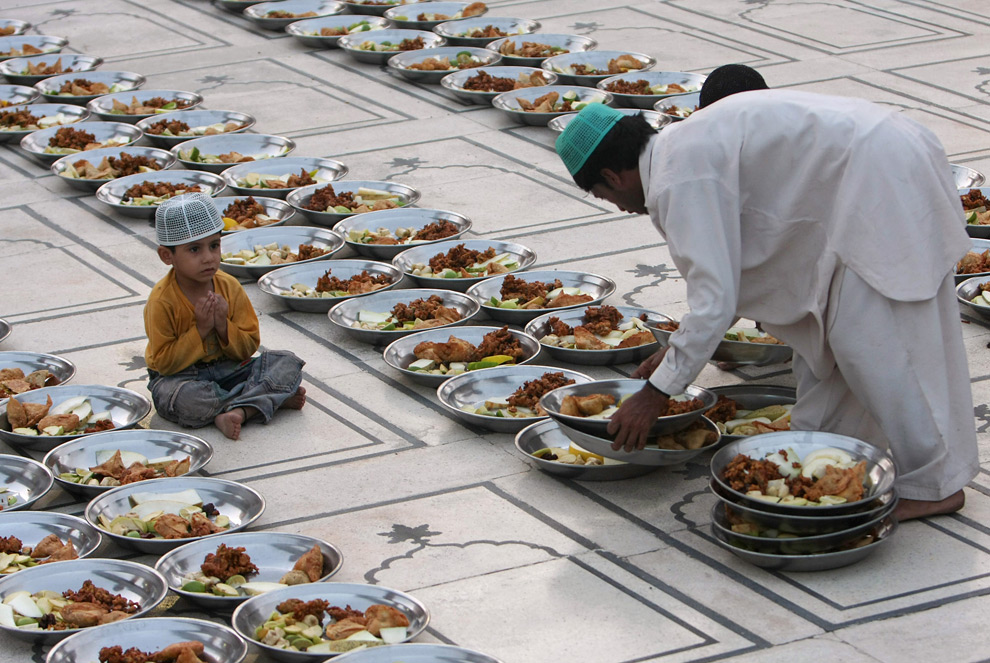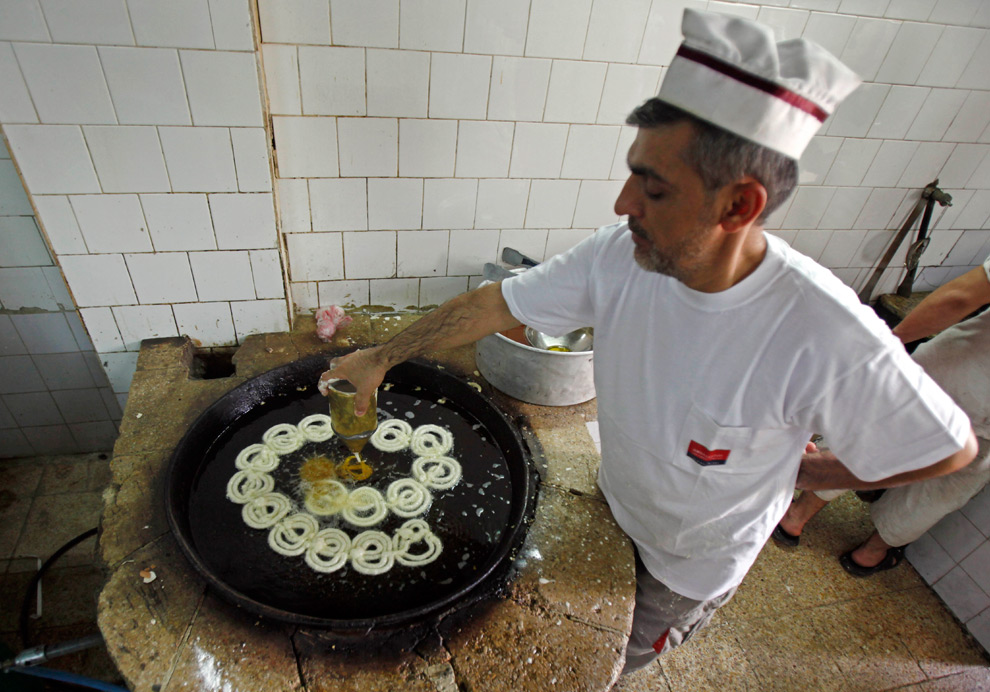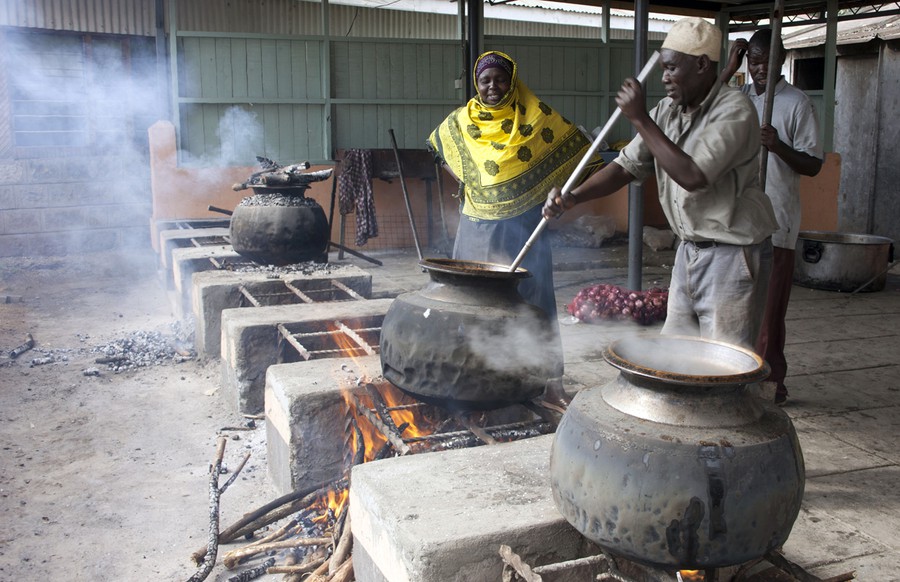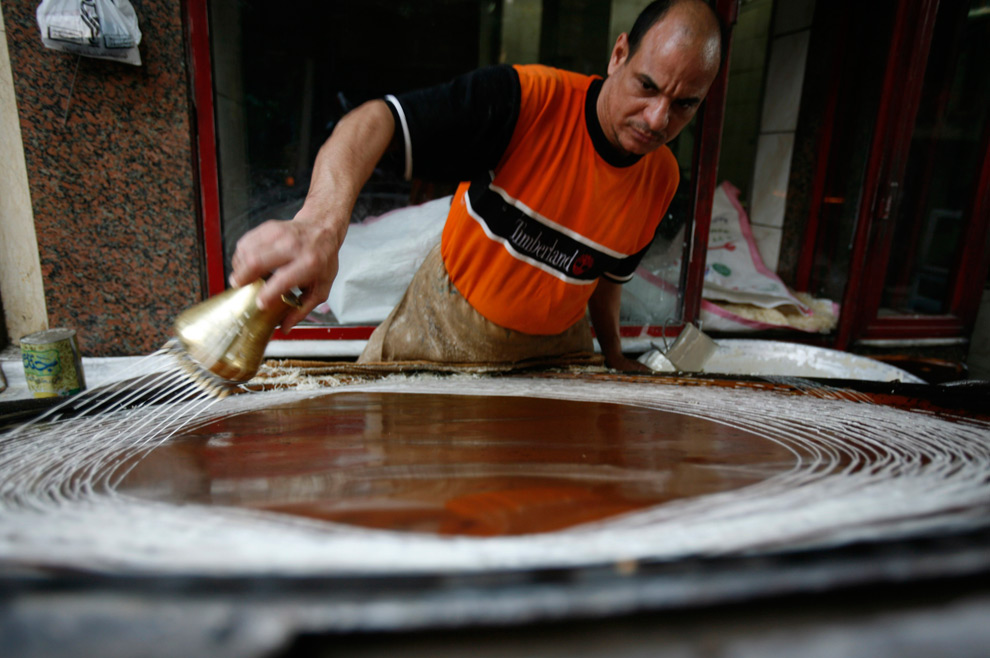Mike Ghouse
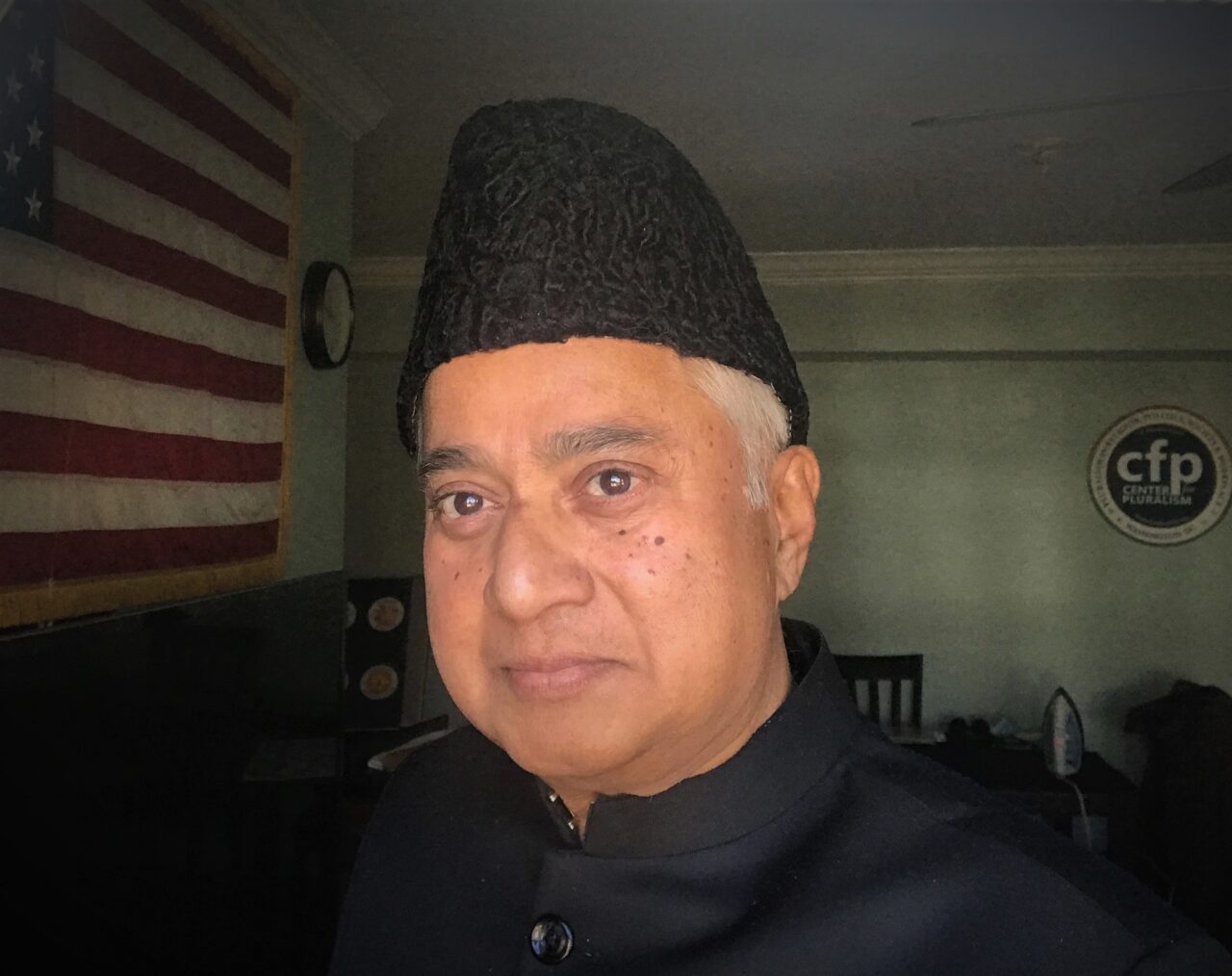
Please note: The article is written with the intent of communicating with fellow Americans to relate with it. It is 2400 words long and is complete and comprehensive. It is everything you always wanted to know about Ramadan. Ramadan is also known as Ramzan in South Asia.
Whether you are an Atheist, Baha’i, Buddhist, Christian, Hindu, Jain, Jewish, Native American, Pagan, Shinto, Sikh, Wicca, and Zoroastrian or from any other tradition, you may feel a sense of connection with the spirit of Ramadan.
There is a cause or a causer who created the universe to come into existence, sustain and recycle it, and the word for that causer is God in different languages (or faiths). No matter how and what name you call upon him –he is one. There (she or it) cannot be different causers for the same universe.
The physical aspect of the human journey from the sperm and an egg through death is programmed precisely. The formula is the same for all humans, and there is no such thing as a Christian, Jewish, Muslim, Hindu, or other gene.
When the universe came into being, two main products of the process were Matter and Life. The matter functions precisely as designed, like the Sun, Jupiter, Earth, or the Moon playing their part. On the other hand, humans have complete freedom, guidance (any religion), and intelligence to create their own balance to live securely and in relative harmony.
A balanced society is where every one of us functions cohesively. It is sustained by respecting the otherness of others and accepting the God-given uniqueness of each of us. If we mess with the web, we mess with ourselves ultimately. If we mess with the environmental balance, we will pay for it, just as we bear the loss of health if we mess with what we eat, drink and smoke. There is a consequence for imbalance.
Different Religions
You may note that identical spiritual wisdom emerges in different parts of the world simultaneously; the most outstanding example would be how a mother figures out what to do with her crying baby in the jungles of Amazon or the high society of Hollywood, she knows the child is hungry and needs to be fed.
Indeed, beauty is in the eyes of the beholder, and I would say faith is in the heart of the believer, and every religion is dear to its believer. Religion is like mother, to each one his/her mother is dear.
Religion is about love for fellow beings; a majority of us in every religion get that right but for a few, who keep messing up society’s cohesiveness.
Religion is never the problem; it is the individual who doesn’t get his religion right is the problem.
Rituals of Ramadan
Rituals are a part of our life from birth to death, even though some of us may not acknowledge it. Whether we go to the gym, eat, sleep, wear clothes, drive or talk on the phone, we follow certain rituals. The rituals signify the stepping stones of our daily life. Every significant moment of the day is a ritual.
Discipline is necessary to do things on time, manage personal relationships, drive to a destination or keep within budget. The result of disciplined behavior is worthwhile for most people. When we are joyous, we have to express that sentiment; otherwise, a sense of incompleteness lingers in our hearts.
Every faith is composed of a set of unique rituals to bring discipline and peace to human life. Islam has five essential rituals that Muslims around the world observe, and one of them is fasting.
Ramadan is the ninth month of the Islamic lunar calendar, and Muslims observe it with complete devotion; it is an annual training or a refresher. It requires one to abstain from food, drink, intimacy, ill-will, ill-talk, ill-actions, and other temptations from dawn to dusk, every day for a whole month. One has to rise above his or her baser desires. Islam gifts this month to its followers to bring moderation to their daily lives. Twenty-five hundred years ago, Buddha, the enlightened one, taught that human suffering came with an unrestrained desire to possess and had recommended a middle path. The same recommendation came from Prophet Muhammad fourteen hundred years ago.
The Quran was completed and delivered to the Prophet in the month of Ramadan, and Muslims make sure they collectively recite the entire Quran during Ramadan.
Although Ramadan is known for its culinary delicacies and fancy iftars (ceremonial breaking of fast at sundown), the spirit and intent of Ramadan lie in a human transformation in a month-long inner spiritual journey of finding oneself in tune with spirituality.
Hindus can see that transformation in nine days of fasting during Navaratri, the Jains in seven to nine days of fasting during Paryushana, Christians during forty days of lent, and Jews for seven days around Yom Kippur. Likewise, you find fasting is a way of life in most traditions.
RAMADAN IN THE LIFE OF A MUSLIM
Moon Sighting
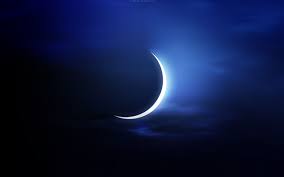
Ramadan begins with the moon sighting! One group insists that they have to see the Moon themselves, while the other accepts if someone else has seen it. In the United States, most Muslims go by Nasa’s calendar so they can plan the festivities. However, it is a joy to wait and watch for the pencil-thin Moon to appear in the sky. Parents place their kids on their shoulders, and kids get excited to watch that Moon from the top of their parent’s shoulders.
Chandni Raat
The moment one sees the Moon or hears an announcement, they dash to the marketplace to shop and celebrate. It is originally a South Asian tradition but has become universal.
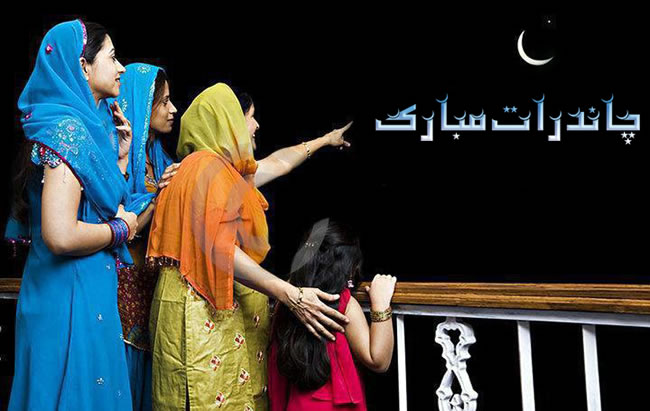
Special Ramadan Prayers
Muslims have various practices – Special Prayers called Taraweeh are prayed in the late evening, followed by nightly prayers called Isha. Typically, 20 to 22 units of prayers. They complete reciting 30 chapters of the Quran in 30 days (or 29). Taraweeh is usually performed in a congregation, generally a Mosque.
A TYPICAL DAY (Times are approximate)
4:00 AM
The entire family rises in the morning, and together they prepare the food for Sahri or Suhoor – the meal before fasting. In our case, I would chop the onions, and my sister would flatten the dough to make Rotis (flatbread), one brother would wash the dishes, and the others would sit around and talk. My mother would sit by the stove (Chula), and my father would make sure all the ingredients were available. It is a family affair and brings families closer. Food habits vary from region to region; we made Rotis (Flatbread) with Subzi and Keema (minced meat) and capped it off with a good cup of tea or lassi. We have to finish eating by 5 AM and ask God to accept our fasting. The cut-off time to eat or drink is about 30 minutes before sunrise, depending on the tradition.
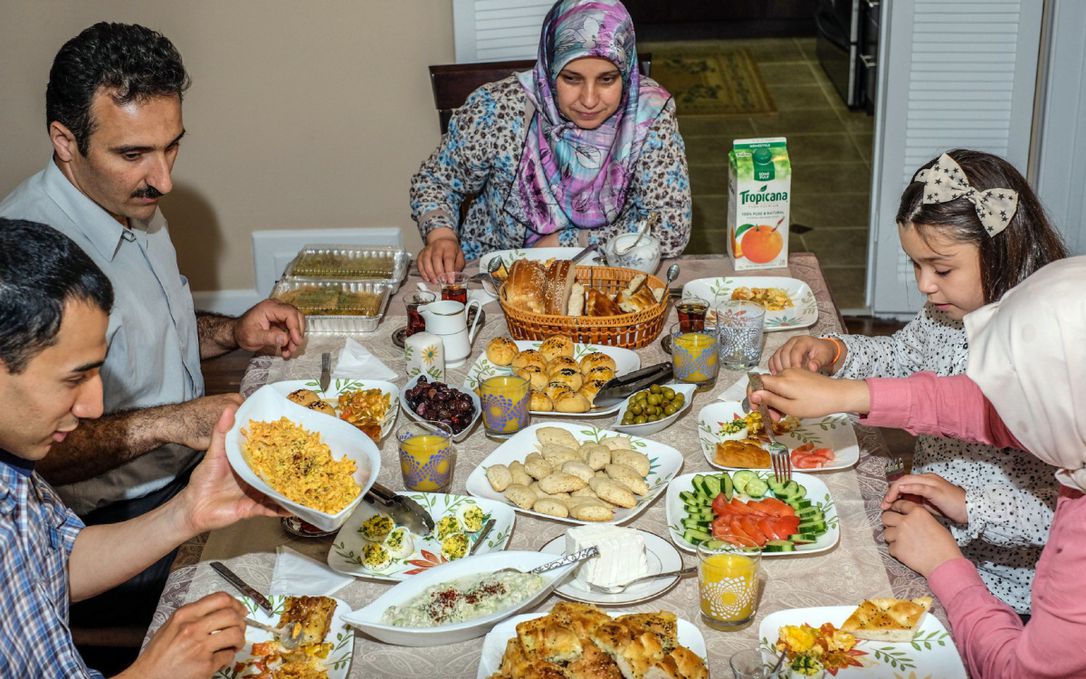
5:30 AM
Pray together or go to the mosque if it is near.
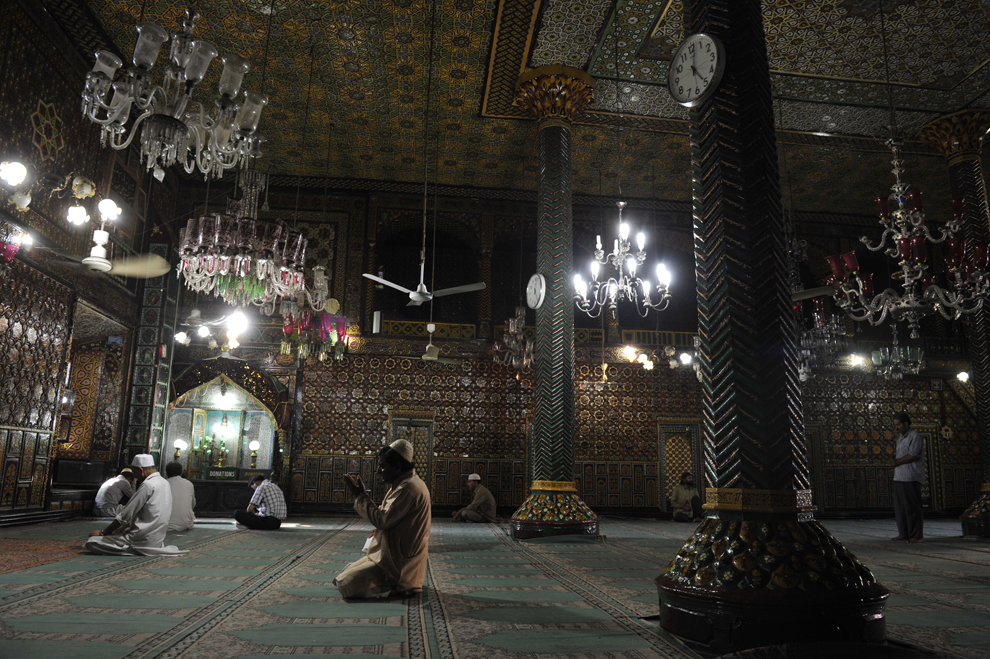
6:00 AM
Sleep for a few hours (Ramadan only) and go to work and some choose to study the Quran in a group called Halaqa. This is a month of reflection and connection with family members.
1:30 PM
The prayer in the afternoon is followed by the one in the late afternoon. One can pray individually, but a congregational prayer is a good option. Remember, it is about bringing the communities together. The Shia Muslims usually combine both the prayers and the Sunnis and Ahmadi do it one by one.
6:30 PM – IFTAAR
Iftar is breaking day long fast.
Sunset – some follow the times prescribed for the evening, and some keep looking at the sky (if it is the clear sky) to see the sunset.
A prayer call (Azan) goes out at sunset; while the Sunnis and Ahmadi Muslims take the first bite of the date fruit and sip some water, the Shias will wait until after the prayer.
Since the observers have not had anything to drink or eat for the whole day, they will start with fruits and light snacks and let the stomach get ready for the entire meal after the evening (Maghrib) prayer. It is a thoughtful process
Iftar Parties
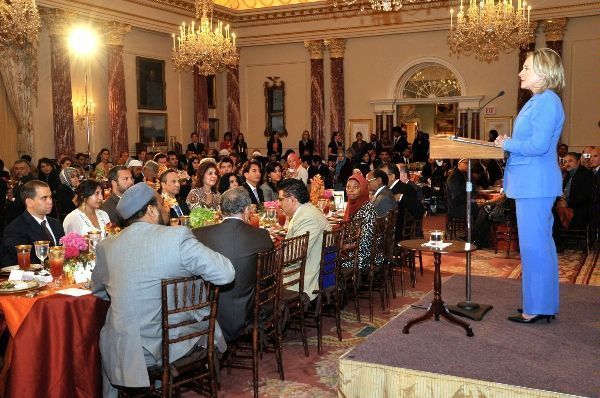
The parties are community-building events. Muslims invite their non-Muslim friends to join them for the Iftar parties. An entire range of foods is available to eat. Indian Muslims offer both vegetarian and non-veg foods (Hindu and Jain) to honor the guests.
In a given Mosque, you will find Muslims from at least 20 to 30 countries, and as such, the variety of dishes increase by number. Biryani is the King of South Asian cuisine, and Naan, Keema, Korma, Rooh Afza, Sweet Lassi, Mango Lassi, and Gulab Jamun are on the plates. One universal item consumed worldwide is the dessert made out of vermicelli; the South Asians call it Seviyaan, and the Shir Khurma is very popular- it can be a drink or soup.
Politicians and corporations also organize the Iftar parties. The tradition was started by President Bill Clinton and carried through President Obama, and we hope Biden will re-start it.
8:30 PM Taraweeh Prayers (described earlier).
LAST DAY OF RAMADAN
On the evening of the 28th as well as 29th everyone is out looking for that Moon again; once an announcement comes out, celebrations begin. Chand Raat (Moon Night) opens up, and people go shopping; it is like shopping on the last day of Christmas, Rosh Hashanah, Diwali, or other festivities. It is a good tradition of excitement and joy for successfully observing the entire month of Ramadan dutifully.
Children and adults paint Mehendi (henna) on their hands with various designs. They look forward to it.
Zakat
Every Muslim takes out 2.5% of his/her wealth and passes it on to the needy. Most people pay in advance, but as usual, some pay on the last day, like we file our IRS tax returns on April 15th.
Eid- the big celebration
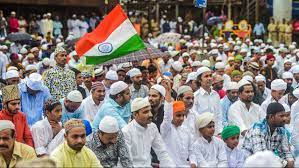
Everyone in the family gets up in the morning, and it is the dawn of the new era. Eat breakfast and go for the mass or congregational prayers, which is also known as Jamaat. Since a Mosque cannot accommodate all the people in the area, they rent convention halls or big banquet halls. Dallas, Texas, rents the Convention Center, where some 20,000 people gather for the congregational prayers. Back in my town Yelahanka and perhaps in other places, they all go to the cemeteries – there is always a place made for prayers on the grounds.
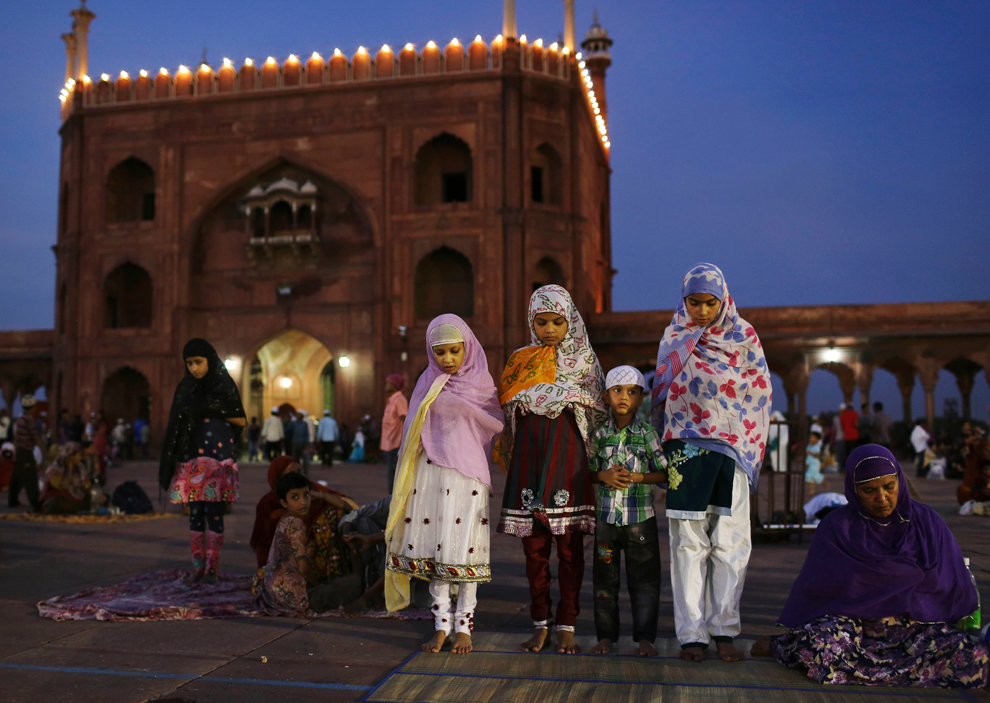
It is the day to celebrate and includes forgiving each other and starting afresh by hugging three times. My interpretation of the three is “forgive me,” “I forgive you,” and “Let us begin” the relationship afresh. The Jains say “Michami Dukkadam” meaning, let’s forgive each other, and start the new year with a clean slate.
Way back in the late’70s Amitabh Bachchan, Rajesh Khanna, Asrani, Mehmood, and other Bollywood actors participated in Eid prayers in Yelahanka, my hometown, a suburb of Bangalore. Mehmood lived a mile or two from the cemetery. The movie stars enjoy the different ways one can worship the creator.
Praying for the deceased
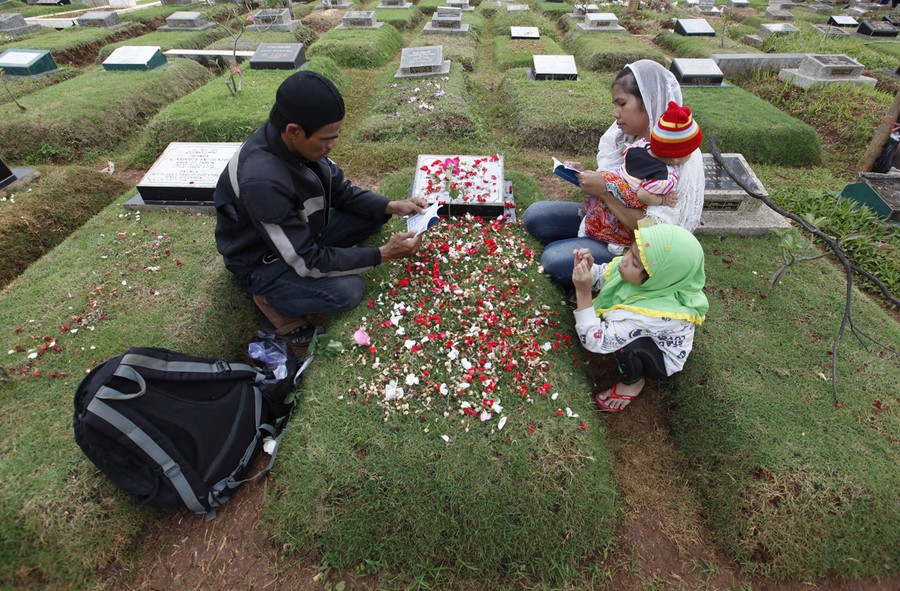
It’s like Memorial Day, almost every Muslim visits the cemetery to pray for their loved one buried there. You will always find yourself connected to them. You can pray for them from anywhere, and on this day of joy, you feel their absence even more.
EIDI
It is a gift you generally present to kids and family members as we do during Christmas, Diwali, and other holidays. Traditionally the man of the house presents the gifts, but in the United States, women present the gifts as well as we all earn equally, and at times women earn more than men. It is usually cash to spend. During my childhood; my father gave me one Anna (like 25 Paise), I and my friend dashed to the store behind our home and drank Orange Soda which was half Anna. That was the greatest pleasure we had.
Eid Parties
It is usually an open house for families, friends, and community members to visit for lunch. A typical family visits at least three homes and of course the practices vary from Muslim to Muslim.
Exceptions:
Fasting is exempt for individuals with diabetes and other difficulties, pregnant women, and even people traveling. If you miss it, you have the option to make it up.
Prophet Muhammad (PBUH) said, God has no need for the hunger or thirst of someone who hurts others, violates their dignity, or usurps their rights. The fasting of the limbs must match the fasting of the stomach. The eyes, ears, tongue, hands, and feet all have their respective fasts to undergo. For example, the tongue’s temptations — lies, backbiting, slander, vulgarity, and senseless argumentation — must be curbed to maintain the integrity of the fast.
The consciousness of behavior and vigilance over action are the most profound dimensions of fasting: the fasting of the heart focuses on the attachment to the divine. That is when Ramadan becomes a source of peace and solace, just as Christmas, Rosh Hashana, or Dussehra go beyond the rituals to bring forth kindness, charity, and caring.
True fasting is self-purification. From this comes a rich inner life that brings about values such as justice, generosity, patience, kindness, forgiveness, mercy, and empathy — values that are indispensable for the success of the community.
Knowing about hunger is different from knowing it. Empathy is not an intellectual equation; it is a human experience. Our hardness of heart often springs from our distance from the human condition of others. The poor, sick, disenfranchised, oppressed — we rarely walk a mile in their shoes, not even a few steps. “Rest assured,” cautioned one teacher, “if you do not taste what it feels like to be hungry, you will not care for those who are.”
Ramadan will come and go with such stealth, and what is it that we value, and why? We can change our habits, customs including obsessive behavior, in the face of a higher calling.
For fasting to be truly universal, its benefits must extend beyond the fraternal ties of Muslims and must extend to forging a common humanity with others. Fasting imparts a sense of what it means to be truly human. Its observance reflects its universality in Baha’i, Buddhist, Christian, Hindu, Jain, Jewish, Sikh, Zoroastrian, and other faiths. More about Ramadan at www.Ramadanexclusive.com
Let the spirit of Ramadan develop an understanding and respect for each one of God’s creation – that is all of us.
The most common greetings of Ramadan festival are Ramadan Mubarak, Eid Mubarak, Ramadan Kareem, and then there is variation depending on the language you speak.
Picture’s courtesy – Boston Globe and the Atlantic
Dr. Mike Ghouse is the president of the Center for Pluralism, an author of the book American Muslim Agenda and an interfaith wedding officiant. He is committed to build cohesive societies and offers pluralistic solutions on issues of the day. His bio is at www.TheGhouseDiary.com or Linked-in.
# # #

